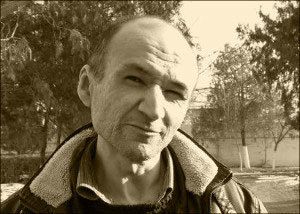November 22, 2016
Annex
After spending five years in the Samarkand psychiatric hospital, Ulugbek Khaydarov, a friend and journalist of Karimov’s, who has since emigrated to Canada (for political reasons?) spoke to him by phone shortly after his release in November 2011. According to Khaydarov, “His voice was the same, his conscience was clear and he had not changed at all. I advised him not to make harsh statements. He just needed to move on, relax, and gain strength … But he did not listen to me. He tried to find a way to tell his story to the international media and human rights activists. He wanted to publicize his own destiny. He had a story to tell.”
In early 2012, following orders from the authorities, Jamshid Karimov was again committed to the hospital. “He was hospitalized two months after being released”, said his 19-year-old daughter, Eugenia. “In the Samarkand psychiatric hospital he was kept in a room with barred windows, like a prison cell. Different people are sent there, sometimes even murderers. There was no trial at all. He was summoned to the National Security Service to have a “talk”, but on his way there he was severely beaten by four men on the street. They knocked his tooth out, he was forced into a car and driven to the hospital. He was covered in bruises. He said that if he had been attacked by a single man, he would have been able to fight back, but there were four of them.”
His daughter also reported that a few months after her father was sent to the psychiatric hospital for the second time, Jamshid’s health deteriorated dramatically and he almost died. She cannot say exactly what happened to him, but she suggests that it was a reaction to the drugs they gave him or to what they added to his tea. “I was told that he [President Karimov) instructed the doctors to bring him back to normal,” she says.
According to Jamshid’s daughter, “Police officers are stationed in his room all the time. If I go to visit him, they sit and listen to our conversations. One cannot say anything private to him because there are always people listening – sometimes one, sometimes two, sometimes three. They also take my phone beforehand in order to stop me from photographing him. They have hidden from him the fact that the president is dead, perhaps because they believe that he will demand to be released. And the police prohibit anyone from telling him about it. He still hopes to be released. He says, ‘They won’t let me out before [Karimov’s] death’. And he often repeats that he will probably not live to see the day.”





